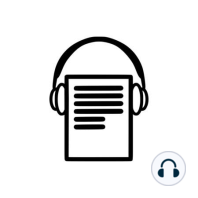20 min listen

Alterations in platelet proteome signature and impaired platelet integrin αIIbβ3 activation in patients with COVID-19
Alterations in platelet proteome signature and impaired platelet integrin αIIbβ3 activation in patients with COVID-19
ratings:
Length:
20 minutes
Released:
Oct 12, 2022
Format:
Podcast episode
Description
Link to bioRxiv paper:
http://biorxiv.org/cgi/content/short/2022.10.12.511145v1?rss=1
Authors: Goudswaard, L. J., Williams, C. M., Khalil, J., Burley, K. L., Hamilton, F., Arnold, D., Milne, A., Lewis, P. A., Heesom, K. J., Mundell, S. J., Davidson, A. D., Poole, A. W., Hers, I.
Abstract:
BackgroundPatients with coronavirus disease-19 (COVID-19) are at increased risk of thrombosis, which is associated with altered platelet function and coagulopathy, contributing to excess mortality.
ObjectivesWe aimed to characterise the mechanism of altered platelet function in COVID-19 patients.
MethodsThe platelet proteome, platelet functional responses and platelet-neutrophil aggregates were compared between patients hospitalised with COVID-19 and healthy control subjects using Tandem Mass Tag (TMT) proteomic analysis, Western blotting and flow cytometry.
ResultsCOVID-19 patients showed a different profile of platelet protein expression (858 altered out of 5773 quantified). Levels of COVID-19 plasma markers were enhanced in COVID-19 platelets. Gene ontology (GO) pathway analysis demonstrated that levels of granule secretory proteins were raised, whereas some platelet activation proteins, such as the thrombopoietin receptor and PKC, were lowered. Basally, COVID-19 platelets showed enhanced phosphatidylserine (PS) exposure, with unaltered integrin IIb{beta}3 activation and P-selectin expression. Agonist-stimulated integrin IIb{beta}3 activation and PS exposure, but not P-selectin expression, were significantly decreased in COVID-19 patients. COVID-19 patients had high levels of platelet-neutrophil aggregates, even under basal conditions, compared to controls. This interaction was disrupted by blocking P-selectin, demonstrating that platelet P-selectin is critical for the interaction.
ConclusionsOverall, our data suggests the presence of two platelet populations in patients with COVID-19: one with circulating platelets with an altered proteome and reduced functional responses and another with P-selectin expressing neutrophil-associated platelets. Platelet driven thromboinflammation may therefore be one of the key factors enhancing the risk of thrombosis in COVID-19 patients.
Essentials- COVID-19 patient platelet function and platelet proteins were compared with healthy controls
- Proteomic analysis of platelets indicated that COVID-19 decreased platelet activation proteins
- Agonist induced PS exposure and integrin IIb{beta}3 activation were impaired in COVID-19
- COVID-19 led to maximal levels of P-selectin dependent platelet-neutrophil aggregates
Copy rights belong to original authors. Visit the link for more info
Podcast created by Paper Player, LLC
http://biorxiv.org/cgi/content/short/2022.10.12.511145v1?rss=1
Authors: Goudswaard, L. J., Williams, C. M., Khalil, J., Burley, K. L., Hamilton, F., Arnold, D., Milne, A., Lewis, P. A., Heesom, K. J., Mundell, S. J., Davidson, A. D., Poole, A. W., Hers, I.
Abstract:
BackgroundPatients with coronavirus disease-19 (COVID-19) are at increased risk of thrombosis, which is associated with altered platelet function and coagulopathy, contributing to excess mortality.
ObjectivesWe aimed to characterise the mechanism of altered platelet function in COVID-19 patients.
MethodsThe platelet proteome, platelet functional responses and platelet-neutrophil aggregates were compared between patients hospitalised with COVID-19 and healthy control subjects using Tandem Mass Tag (TMT) proteomic analysis, Western blotting and flow cytometry.
ResultsCOVID-19 patients showed a different profile of platelet protein expression (858 altered out of 5773 quantified). Levels of COVID-19 plasma markers were enhanced in COVID-19 platelets. Gene ontology (GO) pathway analysis demonstrated that levels of granule secretory proteins were raised, whereas some platelet activation proteins, such as the thrombopoietin receptor and PKC, were lowered. Basally, COVID-19 platelets showed enhanced phosphatidylserine (PS) exposure, with unaltered integrin IIb{beta}3 activation and P-selectin expression. Agonist-stimulated integrin IIb{beta}3 activation and PS exposure, but not P-selectin expression, were significantly decreased in COVID-19 patients. COVID-19 patients had high levels of platelet-neutrophil aggregates, even under basal conditions, compared to controls. This interaction was disrupted by blocking P-selectin, demonstrating that platelet P-selectin is critical for the interaction.
ConclusionsOverall, our data suggests the presence of two platelet populations in patients with COVID-19: one with circulating platelets with an altered proteome and reduced functional responses and another with P-selectin expressing neutrophil-associated platelets. Platelet driven thromboinflammation may therefore be one of the key factors enhancing the risk of thrombosis in COVID-19 patients.
Essentials- COVID-19 patient platelet function and platelet proteins were compared with healthy controls
- Proteomic analysis of platelets indicated that COVID-19 decreased platelet activation proteins
- Agonist induced PS exposure and integrin IIb{beta}3 activation were impaired in COVID-19
- COVID-19 led to maximal levels of P-selectin dependent platelet-neutrophil aggregates
Copy rights belong to original authors. Visit the link for more info
Podcast created by Paper Player, LLC
Released:
Oct 12, 2022
Format:
Podcast episode
Titles in the series (100)
A genome-wide CRISPR interference screen using an engineered trafficking biosensor reveals a role for RME-8 in opioid receptor regulation by PaperPlayer biorxiv cell biology